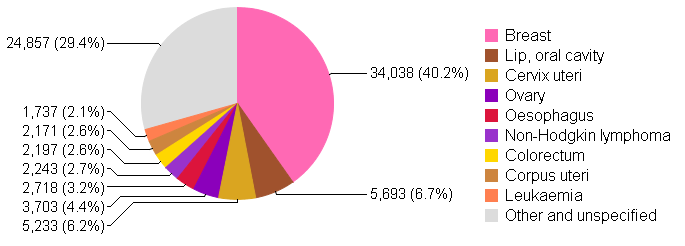Cancer Burden in Pakistan

The Escalating Cancer Burden in Pakistan: Challenges and Solutions
Introduction
Cancer is a global health issue, and Pakistan is no exception. The cancer burden in Pakistan is rising, posing significant health challenges. This blog explores the overall cancer burden in Pakistan, highlighting key statistics, causes, and the urgent need for effective interventions. For more information, visit venturecureco.com.

The Current Scenario
Cancer is the second leading cause of death in Pakistan, following cardiovascular diseases. The World Health Organization (WHO) reports around 148,000 new cancer cases annually in Pakistan, with approximately 101,000 cancer-related deaths each year. This alarming rate underscores the need for comprehensive cancer control strategies. Explore more insights on venturecureco.com.
Major Types of Cancer
Breast cancer is the most prevalent cancer among Pakistani women, accounting for nearly one-third of all female cancer cases. Pakistan has one of the highest rates of breast cancer in Asia. For men, the most common cancers are oral cavity cancer and lung cancer, largely due to high tobacco use and poor oral hygiene.
Contributing Factors
Several factors contribute to the increasing cancer burden in Pakistan:
- Lifestyle Choices: Smoking, poor diet, physical inactivity, and alcohol consumption are major risk factors.
- Infectious Agents: Human papillomavirus (HPV) and hepatitis B and C infections contribute to cervical and liver cancers.
- Environmental Factors: Pollution and exposure to carcinogenic chemicals in industrial areas.
- Genetic Predisposition: Family history of cancer increases the risk for certain types of cancers.
Challenges in Cancer Control
The fight against cancer in Pakistan faces multiple challenges:
- Late Diagnosis: Most cancer cases are diagnosed at an advanced stage due to lack of awareness and screening programs.
- Limited Resources: Insufficient healthcare infrastructure and shortage of trained medical professionals.
- High Treatment Costs: Cancer treatment is expensive and often unaffordable for many patients.
- Stigma and Misinformation: Social stigma and misinformation about cancer lead to delayed treatment seeking.
Efforts and Initiatives
Several initiatives are underway to address the cancer burden in Pakistan:
- Awareness Campaigns: Organizations like Pink Ribbon Pakistan are raising awareness about breast cancer.
- Screening Programs: Efforts are being made to implement regular screening programs for early detection.
- Healthcare Infrastructure: Expansion of cancer treatment facilities and training of healthcare professionals.
- Policy Advocacy: Advocating for better health policies and funding for cancer research and treatment.
The cancer burden in Pakistan is a growing concern that requires immediate and concerted efforts. By enhancing awareness, improving early detection, expanding healthcare infrastructure, and implementing effective policies, Pakistan can make significant strides in reducing the impact of cancer on its population. Collective action from the government, healthcare providers, and the community is essential to combat this formidable challenge. For more detailed information and updates on cancer-related initiatives in Pakistan, visit venturecureco.com. Let’s work together to fight against cancer and build a healthier future for all.
